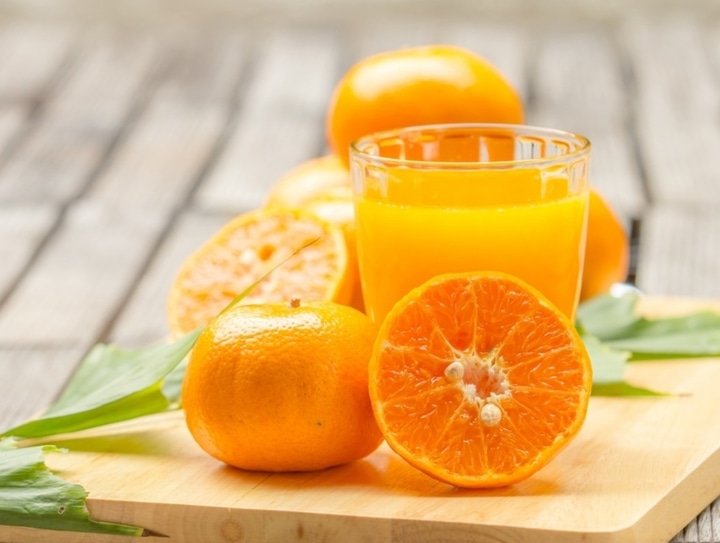Many times orange juice is consumed more than whole oranges, but did you know that it is not as healthy or nutritious as you think? We explain why.

Every morning he always performs the same ritual: he takes two or three fresh oranges from the fruit bowl, cuts them in half, and squeezes them in the citrus juicer in order to obtain all their juice. Then, carefully remove the pulp and the whitish skin that has remained in the juicer, strain it, and pour its orange juice in a large glass. Throw the peel, that whitish skin and the pulp of the orange into the garbage.
It is, almost with total probability, a habit that is carried out every morning in a wide variety of homes in our country, especially and especially during the winter months, when the orange is precisely at its best. In fact, for a good number of people it is common for orange juice to become another part of their breakfast, accompanying it with a cup of coffee.
Be that as it may, there is no doubt that its consumption also increases at this time of year because -in theory- it helps to increase our defenses and is useful in preventing colds and flu.
Although it is true, as we have already mentioned on occasion, that oranges do not help prevent or cure the common flu or cold, they do help strengthen our immune system thanks to their high content of vitamin C and potassium, so that its consumption is recommended when it comes to reducing the risk of getting sick from these common conditions during this time of year.
However, more and more nutritionists are against fruit juices, especially packaged ones, which we usually find in the supermarket. In other words: they defend the consumption of whole fruits well above their consumption in the form of juices or fruits.
The reasons are quite diverse (which we will discuss throughout this note), but there is an extremely important one that we should never underestimate: the nutritional properties that a whole orange gives us are not the same as those that they give us in juice, just as the amount of food we will consume will not be identical.
What are the main differences between whole orange and juice form?
We eat more food in the form of juice than whole:
It is evident that the amount we ingest when taking whole fruit fresh or in juice is not the same, because to prepare a glass of juice we will need at least 2 pieces of fruit (and sometimes we may fall short).
In the particular case of orange juice, we must bear in mind that a medium orange weighs around 200 grams, of which 50 are part of the peel. That is, of those 200 grams that are actually edible, they are only 150 grams. However, to obtain a 250 milliliter glass of juice we will need at least 2 and a half oranges.
Therefore, when we take the fruit in the form of juice we will be ingesting more food, but especially in the form of sugars and with a lower amount of fiber than if we consumed them whole.
Less fiber and therefore less satiating power:
Most of the fiber that we find in a piece of fruit is located mainly in its skin and its pulp. In the particular case of the orange, we also find part of this fiber in the thin white skin between the peel and the pulp. However, when we prepare it in the form of juice it is evident that the pulp and most of that white skin is removed, and is not consumed.
Therefore, orange juice loses most of the fiber that the whole orange gives us. In fact, if a fresh and natural orange gives us around 2.4 grams of fiber per 100 grams, when we take it in the form of juice it barely gives us 0.1 grams. And if, in addition, we tend to strain the orange juice, the result is even worse: it will have practically no fiber, being completely eliminated.
This means that not only will we consume practically no fiber, but the satiating power of orange juice is much less than if we consumed it whole. Therefore, it will not help us satiate or delay our appetite, so we will end up eating more food.
Greater absorption of sugars:
Some time ago the World Health Organization (WHO) itself advised taking whole fruit and naturally, reducing the consumption of fruit juices, especially among children.
The reason is quite simple: the fiber that we find in a whole piece of fruit helps the sugars present in it to be absorbed more slowly. However, when we opt for a glass of fruit juice, its sugars end up being absorbed faster.
The effects are also quite evident, since the juice will have a less satiating power, and in addition, it will cause a sharp increase in blood glucose levels. For this reason, fruit juices, packaged or natural, are closely related to the increase in overweight and obesity that our population is suffering today.
Taking everything into account, the conclusion is more than evident: discard our orange juice for breakfast and replace it with the consumption of whole oranges. They are just as delicious, more nutritious and above all much healthier.































